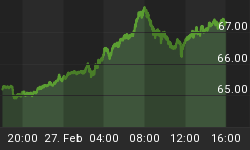I'm listening to the audio version of George, Nicholas and Wilhelm: Three Royal Cousins and the Road to World War I, written by Miranda Carter and brilliantly narrated by Rosalyn Landor. It's the story of some almost supernaturally dysfunctional governments blundering into a war that seems more rather than less crazy with the passage of time.
Among the many surprising facts from those days (one short century ago):
Most European kings and queens were related. Only "royals" were good enough to marry into the top strata of the aristocracy, so a relatively tiny pool of princes and princesses were traded back and forth like baseball cards. By the late 1800s Britain's King George, Russia's Czar Nicholas, and Germany's Kaiser Wilhelm were all grandsons of Britain's Queen Victoria. They and their families hung out together on massive yachts and 10,000 acre estates, shooting and drinking and generally behaving dickishly, as humans will when given unnatural amounts of power.
And about that power...most European countries were still monarchies where the king/emperor actually ran things. Britain had, during the 60+ years of Victoria's reign, morphed into a constitutional monarchy where royalty was revered but Parliament made policy. But in Germany and Russia the guys calling the shots (literally and figuratively) were the sons of the guys who called the previous generation's shots. The Kaiser and Czar ran their respective shows -- and each, in his own way, was nuts.
The story of how the neuroses of these tragicomic figures led Europe into Hell is full of unwise foreign wars, domestic repression, secret deals structured by inner demons rather than clear vision, weird facial hair and general stupid rich guy hubris.
But one thing that never comes up is monetary policy. That world was on the Classical Gold Standard, where currencies were simply names for given weights of gold and paper notes were warehouse receipts for gold coins that could be redeemed at any bank.
So when Russia picked a fight with Japan and got its butt kicked, it couldn't just print more rubles and keep going. It had to rein in its ambition, take out a big loan from France, and spend a few years licking its wounds. When unstable Germany and relatively-rational Britain began an arms race, they couldn't just print new currency, give it to a shipyard and expect to have a fleet new battleships the following year. They had to get actual money from their government treasury, their citizens' taxable wealth or loans from people who expected to be paid back in full and on time. There was debt, of course, but it was minuscule by today's standards because the interest had to come from a global money supply that was only increasing by about 2% per year, as new gold was mined.
In the decades leading up to World War I, despite some barely-sane leaders running barely-functional institutions, inflation was never an issue. Money saved was wealth preserved, and global capital flowed freely. Millions of people started poor and ended middle class, and Europe, despite the occasional horror show at the top, was perceived by the vast majority of its citizens to be progressing nicely.
That's the power of sound money, but perhaps also, in a perverse way, its limitation. By enabling societies to grow richer and more powerful, it creates a sense of optimism that can, in the wrong hands, be shaped into aggression. Which raises some interesting questions:
Was the chaos of WWI, the Great Depression and WWII caused in part by the gold standard? Or was it just the luck of the draw, an accident of birth that placed the wrong people in charge of a sound money world that was otherwise heading in the right direction?
What would today's world be like if Germany and Russia had moved just a little more quickly towards representative democracy -- or simply picked more rational, flexible leaders -- a century ago? Extrapolate the sustained growth and stable prices of the 19th century into the 21st, and the power of compound interest implies some truly amazing things.
Has fiat currency and unlimited money creation handed the same kind of power to today's bankers and politicians as absolute monarchy gave to Kaiser Wilhelm and Czar Nicholas? And are they managing that power any better than those guys did?
If today's central bankers are this century's dysfunctional royalty, how will the mess they're making compare with the previous one?















